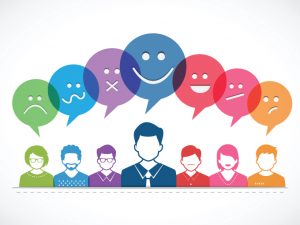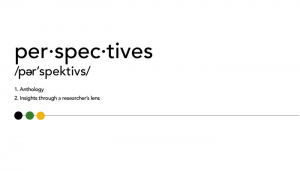
Emotional intelligence helps us to navigate tricky situations, improve interpersonal relationships, and boost workplace performance.
Who do we call when we need advice? Experience has proven to us this person will make it better. Whether knowing the right thing to do, giving great advice, offering comforting words, or just listening so we can process the issue aloud, the person who comes to mind improves our disposition.
It’s likely this person has a high level of emotional intelligence. Emotional intelligence (EQ) is, “one’s ability to recognize and understand emotions… and the ability to use this awareness to manage… behavior and relationships,” according to Dr. Travis Bradberry. Emotional intelligence is comprised of four skills defined within two disciplines of competence: personal competence and social competence.
Personal competence is defined by one’s personal ability to be self-aware and manage emotions. If one is personally competent, they are able to accurately perceive and acknowledge stimulus, then behave in a manner whereby their emotions are controlled. They successfully remain flexible and direct emotions in the most beneficial way for themselves.
Social competence is comprised of social awareness and relationship management. If one is socially competent, they understand others’ behaviors, moods, and situations, and importantly: react to improve the relationship.
There are three keys to understanding emotional intelligence or EQ:
Emotional Intelligence, IQ, and Personality Are Different. IQ and EQ (emotional intelligence) are distinct without correlation: one simply can’t predict emotional intelligence based on how smart someone is. Intelligence and emotional intelligence differ in that one is static while the other has the ability to be developed. Intelligence is your ability to learn while emotional intelligence, can be improved. Personality is developed along with EQ: It is the stable “style” that defines each of us but can’t be used to predict emotional intelligence. IQ, emotional intelligence, and personality all work together to affect our behaviors.
Emotional Intelligence Is Linked to Performance. Emotional intelligence was evaluated among 33 other workplace skills. The results indicate that emotional intelligence is the strongest predictor of performance, explaining a full 58% of success in all types of jobs. EQ is the basis for many critical professional skills as it plays the primary role in determining interactions with colleagues. Research…shows that 90% of top performers in the workplace are high in emotional intelligence while just 20% of bottom performers are high in emotional intelligence. Those with higher EQ tend to enjoy higher salaries by an average of $29,000 annually. In every industry and every position in a company, the link between EQ and earnings is so direct that every point increase in EQ adds an average of $1,300 to an annual salary.
Emotional Intelligence Can Be Developed. Now that we understand the significance of EQ, it is important to understand that EQ is a skill we can practice and improve upon. Research shows humans have an emotional reaction to experiences before they are processed by our ‘rational brains.’ Our primary senses come together at the spinal cord and must travel through the limbic system (the place where emotions are generated) before they reach our brain and we can rationally think about an experience. Plasticity is the brain’s ability to change and learn new connections as one learns new skills. It is through plasticity that EQ skills can continue to develop. Allowing EQ skills to become habits, no matter our age, will enhance our ability to relate and realize the happiness and contentment we deserve.
“Our emotions need to be as educated as our intellect. It is important to know how to feel, how to respond, and how to let life in so it can touch you.”
-Jim Rohn, Entrepreneur

